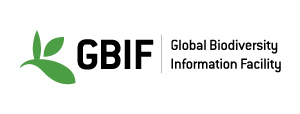Coleoptera of Togo: data of the LEA Insect Collection of the University of Lome
Université de Lomé
GUID: 38fdd8b7-4e48-452c-8c05-673e6f6829af
DOI: 10.15468/6nppyd
UID: dr145
Resource type: records
Last changed: Data services on 2025-07-19 11:24:57.0
This dataset was downloaded from GBIF. View details on GBIF.org
Verification status: Currently this data resource is marked as unverified Mark as verified
Description
Public short descriptionNot provided
Public descriptionThis database aims to be a component of a larger one: A national Coleoptera diversity database in Togo. Indeed, like other African countries, various ecosystems of Togo, such as forests and wetlands, are undergoing intensive degradation due to agricultural practices and rapid population growth (UICN/PACO 2008). The loss of biodiversity associated with ecosystem degradation and habitat destruction, especially in insects is well documented (Ehrlich 1988, Lugo 1988, Samways 1994, Turner 1996, Erwin 1997, Orgeas and Ponel 2001). This is the case of the Missahoe Classified Forest (FCM) located in Kloto prefecture where the most of the Coleoptera specimens constituting this dataset were collected. Due to its immense entomological diversity, this forest has been a modelsinces the 1980’ for entomology and ethnobiology research for scholars in Togo and other researchers in West African and Northern region. For instance, Milan (2011) compiled a catalog of 269 species of Rhopalocera Lepidoptera during a mission in the FCM and the Museum of IITA (International Institute of Tropical Agriculture) in Cotonou-Benin included specimens of insects collected in this forest (Curletti and Goergen 2011). Unfortunately, in the early 1990s, intensive hunting for purposes of national and especially international trade of Lepidoptera, Phasmoptera and Coleoptera (MERF/PNUD 2010) threatened these groups and affected a large food web (Klimaszewski 2000). Besides the effects on species populations and ecosystems, human populations in the region are affected in other ways, as insects in general occupy an important place in their health, socio-cultural, artistic and aesthetic activities (Van Huis 1996, 2003a, 2003b). Indeed, this dataset contains records of pests and species used as food by various ethnic groups in Togo. Among the stock pest, the following species can be cited: Callosobruchus maculatus F., Callosobruchus rhodesianus P. and Bruchidius atrolineatus P. of Chrysomelidae family (Giga and Smith 1987, Glitho 1990, Ketoh et al. 2000, 2002, Amevoin et al. 2006, Doumma et al. 2011) are associated with cowpea, Vigna ungucilata L. (Fabaceae). Prostephanus truncatus H. (Bostrichidae), an invasive species, constuting serious pest of stored maize and cassava that was introduced in Togo in 1980 (Hodges 1994, Mendiola-Olaya et al. 2000, Tyler and Hodges 2002, Muatinte et al. 2014); Sternochetus mangiferae F. (Curculionidae), develops mainly on mango and constitutes a species of quarantine in the countries where it is absent (Follett 2002, De Roffignac et al. 2007, Louw 2010, Muriuki 2011, OEPP/EPPO 2011, CABI 2017); and Apate monachus F. (Bostrichidae), attacks coffee tree, Coffea liberica W. Bull ex Hiern (Rubiaceae), aged 4 to 5 years and digs galleries in the lower half of the trunk (D’Aguilar et al. 1962).
With regard to edible insects, species belonging to Buprestidae (Sternocera interrupta Olivier), Curculionidae (Rhynchophorus phoenicis Fabricius), Cerambycidae (Petrognatha gigas Fabricius), Dytiscidae (Cybister tripunctatus Olivier, Cybister senegalensis Aubé) and Scarabaeidae families (Oryctes monoceros Olivier, Heteroligus meles Billberg, Augosoma centaurus Fabricius, Pachnoda cordata Drury, Gnathocera trivittata Swederus) (Van Huis 2003b, Agbidye et al. 2009, Badanaro 2015, Kelemu et al. 2015, Kumar et al. 2017) can be mentioned.
In addition, there is very few online data on Coleoptera in the West African region (Figure 1). Currently, the largest dataset is contributed by the « Denver Museum of Nature & Science ». However, despite its size, all its recods come from a few localities of Ivory Coast (6,174 occurrences), and more than 90% of these belongs to just four species in the Scarabaeidae family. Given this striking lack of data on Coleoptera in this area, our dataset contributes significatively to a better knowledge of these insects (Togo in Figure 1). The present dataset specifically: (1) provides label data of the Coleoptera specimens kept at the Insect Collection of LEA; (2) allows to follow up the population dynamics of these species in time and space at national level for their conservation, and (3) contributes to knowledge of their distribution according to the different agro-ecological zones in West Africa, setting a baseline for future ecological studies.
Technical descriptionNot provided
Bounding box (decimal degrees WGS84)
- North: Not provided
- South: Not provided
- East: Not provided
- West: Not provided
- Start date: Not provided
- End date: Not provided
Not provided
Methods descriptionNot provided
PurposeNot provided
Data generalisations:
Information withheld:
Content types: point occurrence data, gbif import
Image metadata
These values the default values displayed for any images loaded for this data resource.
Taxonomic range
Data mobilisation
Atlas contributor: no
Status: identified
Provenance:
Last checked: 2020-03-18 20:03:24.0
Data currency: 2020-01-06 01:00:00.0
Harvest frequency: Manual
Mobilisation notes:
Harvesting notes:
Public archive available: no
Connection parameters
| Protocol: | DarwinCore archive |
| Data URLs | http://metadonnees.gbif.fr/upload/1584558272532/0023447-200221144449610-dwca.zip |
| LocationURL: | file:////data/ala-collectory/upload/1584558272532/0023447-200221144449610-dwca.zip |
| Automaticallyloaded: | Not supplied |
| DwCtermsthatuniquely identifyarecord: | gbifID |
| Stripwhitespacesinkey: | Not supplied |
| IncrementalLoad: | Not supplied |
Default values for DwC fields
| georeferenceVerificationStatus: | Not supplied |
| identificationVerificationStatus: | Not supplied |
File upload
Upload a data fileCitation and rights
Citation: Radji R, Gomina M, Amevoin K (2020). Coleoptera of Togo: data of the LEA Insect Collection of the University of Lome. Version 1.4. Université de Lomé. Occurrence dataset https://doi.org/10.15468/6nppyd accessed via GBIF.org on 2020-03-18.
Rights:
License type: other
License version:
Permissions document:
Permissions document type: Other
Download limit: no limit
Logo
Representative image
Location
| Address |
"Faculty of Science - University of Lome" Lomé Lomé 01BP1515 TG |
|
| Postal | ||
| Latitude | ||
| Longitude | ||
| State/Territory/County | Lomé | |
| pradji@univ-lome.tg | ||
| Phone | +22890045114 |
Record consumers
These institutions and collections hold specimens related to the records sourced from this data resource.
Adding relationships here allows data processing to correctly attribute records down to the collection using collection codes and institution codes associated with the institution.
Attributions
Taxonomy hints
External Identifiers
- GBIF:38fdd8b7-4e48-452c-8c05-673e6f6829af
User download reports
GBIF synchronisation
GBIF registry key: 38fdd8b7-4e48-452c-8c05-673e6f6829af
GBIF supplied dataset (i.e. downloaded via GBIF services): yes
Should be shared with GBIF ? : yes
Has a GBIF compatible licence (current licence is other) ? : no
GBIF Link: View details on GBIF.org
GBIF webservices Link: View details on GBIF.org

 View summary
View summary View EML
View EML 


